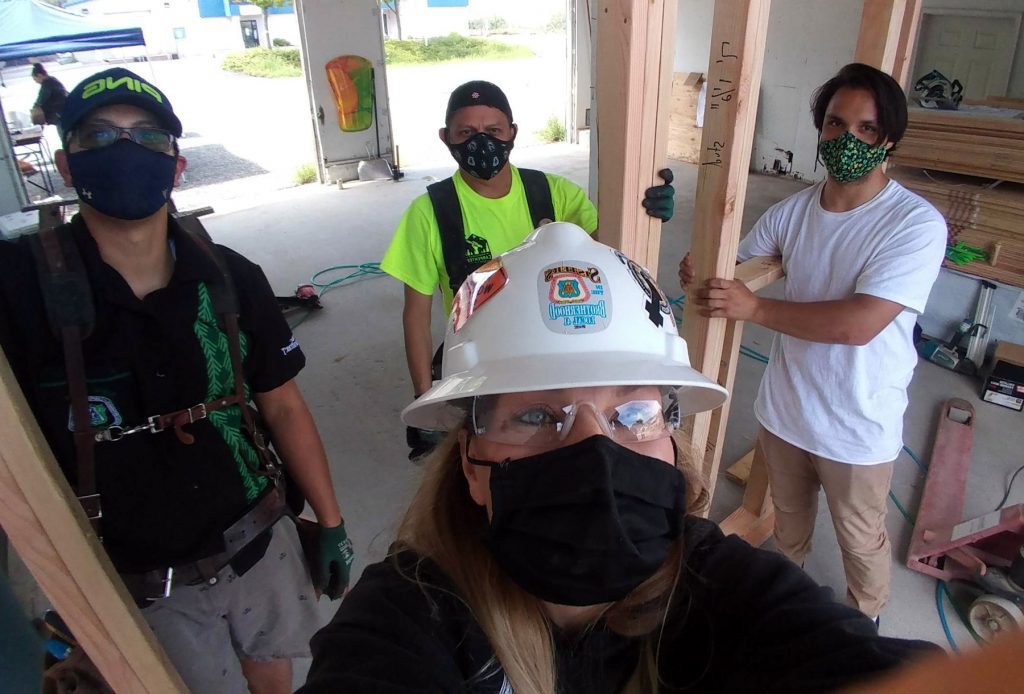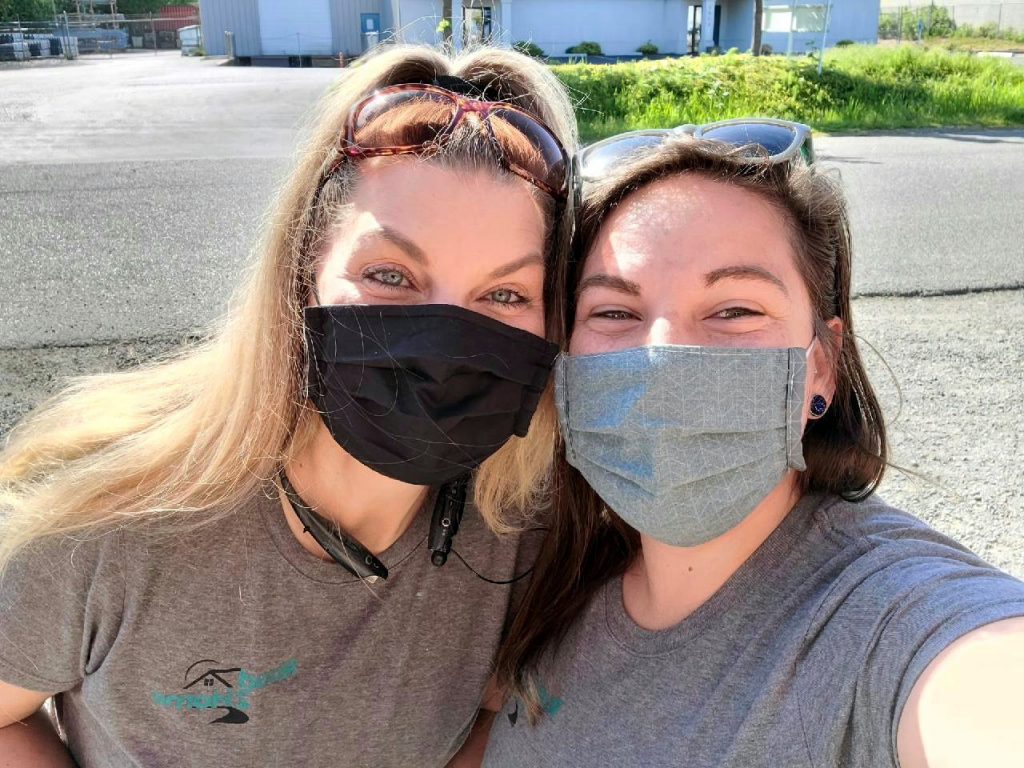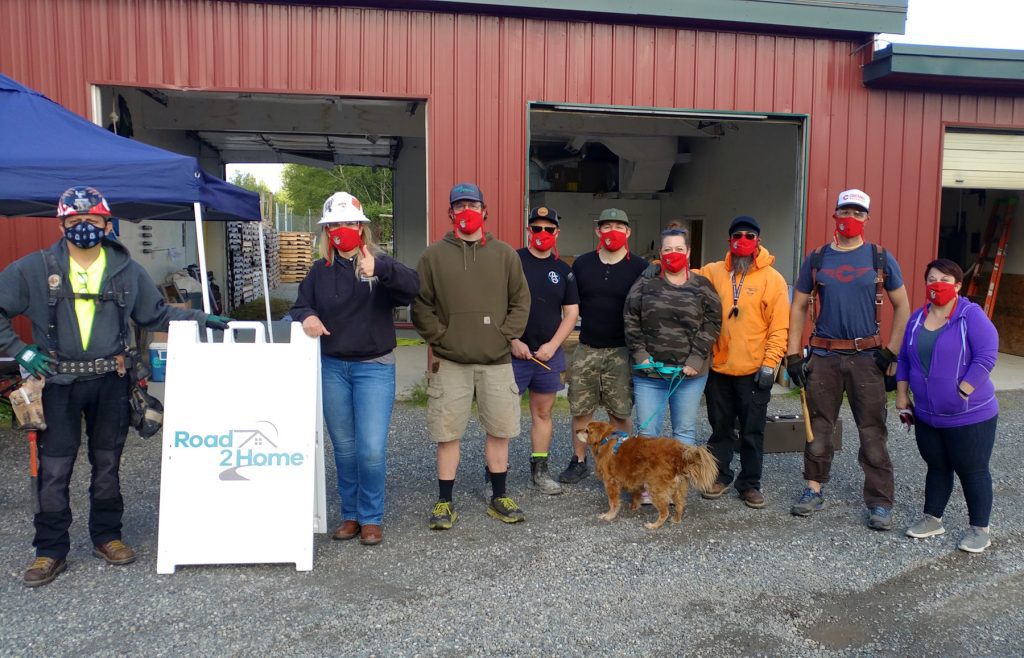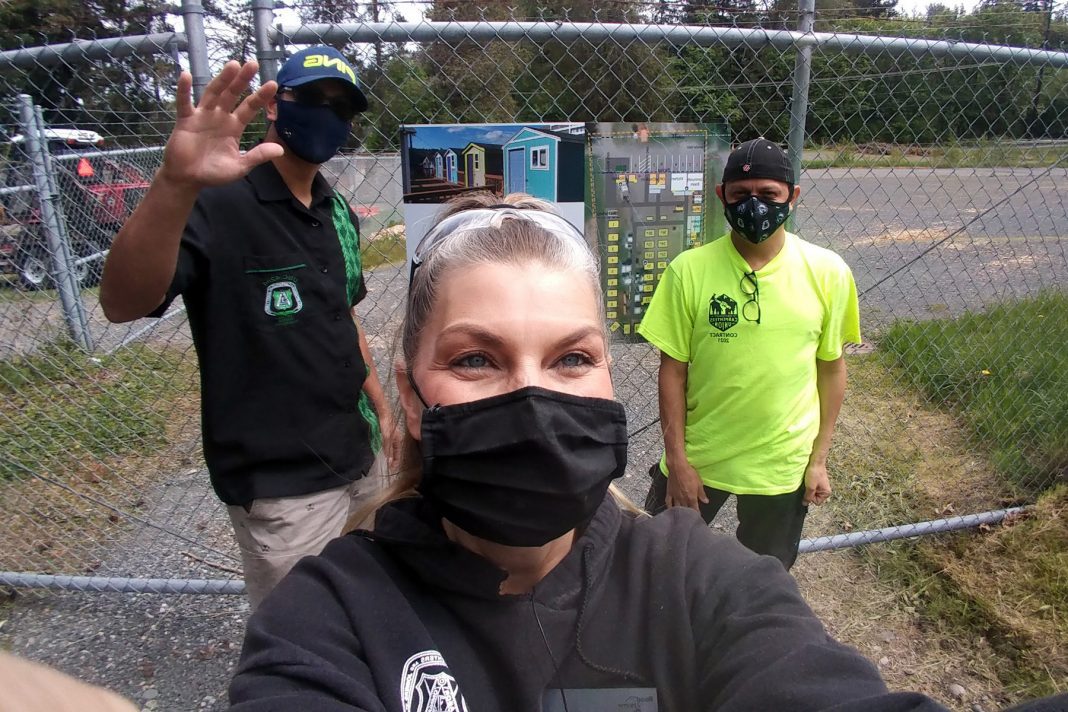Lisa Marx moved to Bellingham in 1990, and watched her babies grow up here. Now she’s watching her grandchildren grow and reflecting on all that’s happened along the way—including the global financial recession of 2008. “When the economy crashed, so did my life,” she says. “Luckily my kids were out of the house by then, but I ended up losing my home. I went bankrupt, I was barely keeping an apartment and I didn’t know what I was going to do. To be honest with you, I was getting ready to look into renting a storage unit.”
Her job at the Harley-Davidson shop disappeared when the company left town, and Fred Meyer wasn’t offering many hours. “I was out on my deck one day, just crying. I didn’t like the thought of having to live in a storage unit, but I was going to do whatever it took to stay off the streets,” Marx says. “My neighbor came out and asked if I was still looking for work. She said, ‘I’ve got a friend who goes crabbing in Alaska, and they need somebody to help them get the boat ready.’”
Marx felt completely out of her element but was absolutely motivated. “I worked super hard because I wanted to keep working as much as I could, and I outworked the two guys that were there,” she says. “The captain said, ‘I haven’t had a female deckhand before, but if you want to come to Alaska, we’ll hire you on.’ So, I worked as a deckhand on a troll tender transport.”
While her life had taken some twists before, this was a turning point. “It was the best thing that ever happened to me,” Marx says. “Being a woman of my age, I had never thought about doing those kinds of jobs. I never thought that it was something girls did, or that I would ever be strong enough to do. Women in my generation always got steered towards the pink-collar jobs.”

She spoke so highly of her experience that friends started pointing out jobs she’d never considered. “People told me that there were good jobs at the BP refinery, so at 43 years old I went out and did the Scaffold Apprenticeship for the Carpenter’s Union—and made more money than I ever dreamed.”
Not only had Marx managed to get her feet back under her, but she’d also surprised herself with her abilities. “That’s why I’m so much of an advocate for folks who are underrepresented, and don’t think about these kinds of careers: to steer them towards believing in themselves and trying,” she says. “On an apprenticeship pathway, people don’t look at your race, your gender, your age, or any of those things that can be a holdup for people.”

Soon she was able to make that advocacy her way of life. “Once I became a Journeyman, I started doing outreach and retention for our Carpenter’s Union Apprenticeship Program, and that’s how I started learning what the City of Seattle was doing to battle their homeless issues,” Marx says. “I learned a lot about the Regional Pre-Apprenticeship Committee that the city of Seattle has built, and LIHI, the Low Income Housing Institute.”
With these new connections, Marx was able to connect struggling school carpentry classes with the resources they need to continue. “LIHI will donate all the material that a class needs to build a tiny house. The students get the opportunity to learn skills doing projects that the school could never afford. And then the houses can help somebody who’s in need of shelter,” says Marx. “It’s this beautiful win/win that helps the kids feel good about being able to help somebody in need. Somebody living on the street or in a tent can actually have a locking door, a roof, a heater, and a bed.”

Her work was disrupted again—this time by a global pandemic that closed down the schools where she found her recruits—but Marx was in a position to press on.
“I’m big on volunteering. I’ve always felt strongly about giving back because I was there, I know how it feels, and I was able to find my way out,” she says. “I decided to look into what I could do in my own community, and Whatcom County Council had this Homeless Strategies committee. I mentioned LIHI at my first meeting and a gal from Road2Home who knew about them happened to be listening in on the meeting. We got a hold of each other and started talking, and it ended up being a connection that blossomed into something really cool.”

Road2Home soon became one of her favorite projects to keep an eye on. “It’s a fairly new nonprofit that specializes in helping homeless people that are 55 plus and medically fragile,” Marx explains. “Their partnership with LIHI was so awesome because it’s a very focused community, and they are able to apply the services piece of outreach, which is so important.”
Including services with housing is part of what attracted Marx to work on the new Gardenview Tiny Homes Village in Bellingham, as well. “This village has 24-hour security and they’ve always got a caseworker on duty to help them navigate paperwork and next steps to get on their feet,” she says. “People’s chances of success are higher when they have support.”

Looking to the future, Marx also has ideas about raising up the people in her hometown. “I can see building more programs here in our own area. I mean, you look around Bellingham and there’s so much growth, so much construction work going on. Why can’t we get our own residents into these jobs?” she asks, and then answers her own question. “If you go to the Washington State Apprenticeship and Training Council website, it will tell you about all the different unions here in town. Carpenters, laborers, painters, electricians—all of those apprenticeship programs are out there and available.”
And, of course, there’s always room for another volunteer. “If people want to get involved, it’s as easy as getting on a website,” Marx says. “There’s something for everybody, and there’s so much need. The Food Bank, Lydia Place, Lighthouse Mission—all of these organizations can use those helping hands.”











































